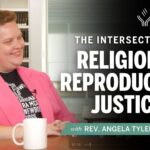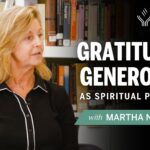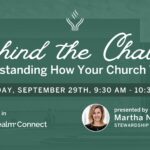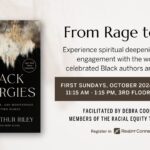People! People! People! | Rev. Dr. Daniel Kanter | 04.14.24

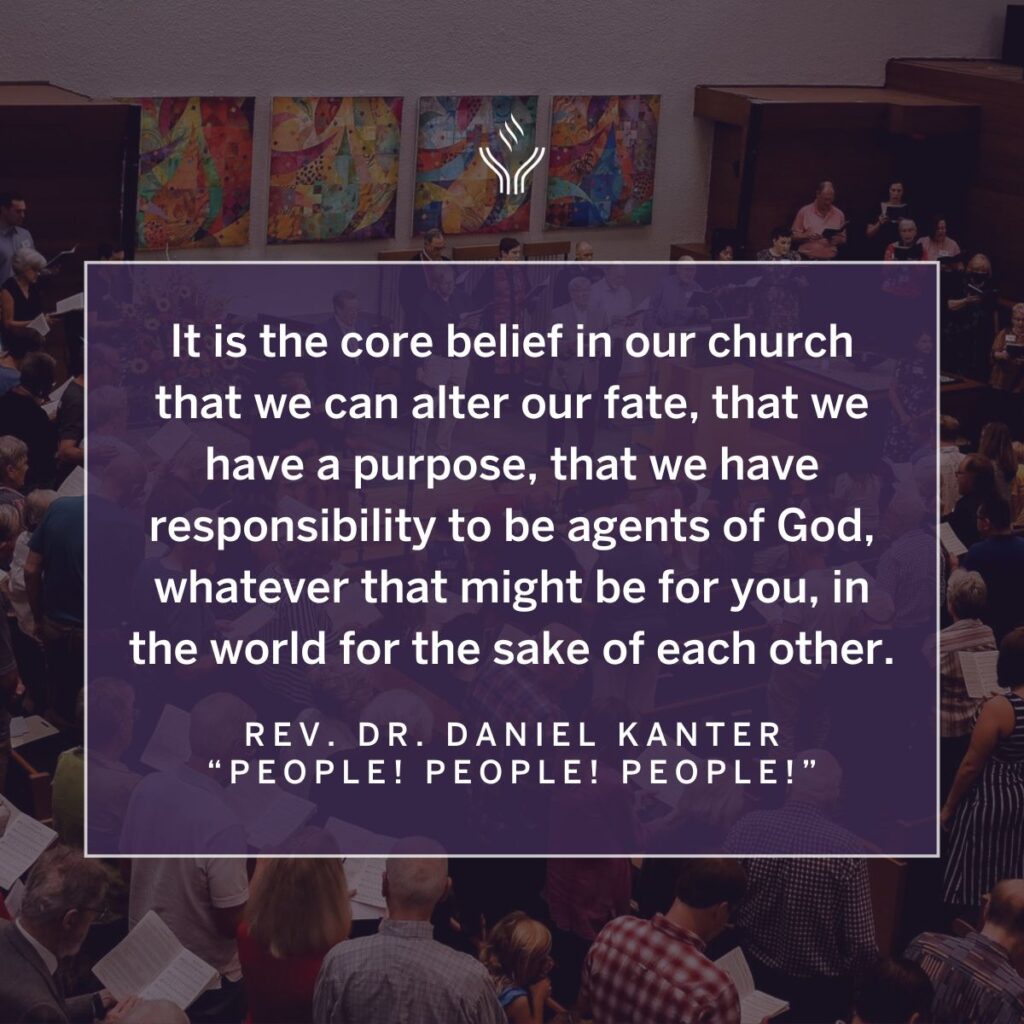
Sermon Transcript
No one who watched the Barbie film last summer will forget this song and the montage of children and mothers, and Barbie discovering that she isn’t just a toy, but a woman whose life purpose isn’t to serve men. The tears I watch that through, the tears, especially when Barbie turns to the older woman on the park bench and smiles are informative for me. Her next words in the film are, “You’re so beautiful.” And the older woman responds, “I know it.” And they laugh and we cry and we aren’t so sure why, except the whole film is asking why are women boxed up and taught they are lesser and meant to live in a men’s world.
And we will never forget the lines from America Ferrera, “I’m just so tired of watching myself and every single woman tie herself into knots so that people will like us.” The film is telling us the answer to the song. You aren’t meant to serve men. And if this is news to you and you’re a woman and you’re here for the first time, you’re in the right church because we’ve tried to lead the leading edge on feminism since Susan B. Anthony, also a Unitarian, and to create a world that doesn’t reflect these binaries. And there’s a reason this film comes through with such a strong message and came through Greta Gerwig, and that’s because she was a Unitarian growing up in a church in Sacramento, California.
What Was I Made For?
What was I made for is the question that undergirds the whole film, but it also undergirds the human search for meaning and thus, everything we do. Billie Eilish who wrote and performed that song in the movie said, “I want to dedicate this song to anyone who experiences hopelessness and the feeling of existential dread and feeling like, ‘What’s the point? Why am I here? Why am I doing this?'” The song taps beneath the Barbie movie’s foundation to explorations of identity and belonging and that feeling of never being enough. Now, the Barbie movie aside, because this sermon isn’t about that movie, just for a moment, the song leads us to the question that we are ending our theme year, Waves of Purpose, Tides of Change with, which is what are people for?
And you could ask that in two ways. You could ask, what are people for in terms of what do we support, act on, stand up for? In some ways, we preach a lot about that side of the question, or you can ask, what are people for? As in why are human beings? What is our role in the universe? Why are we here? Which is a question that I’m asking today, and it’s a question that people have been asking since people started asking questions.
Origin stories from around the world
The origin stories of humanity have been trying to explain the answer to this question since stories were first told.
You know the Genesis story, God breathed into the dust and the mud. He made mud people ready to care for the Earth, but they get it all wrong and they thirst for knowledge and power and lust. You’ve heard that, right? One interpretation is that we are doomed, that a particular popular interpretation of this story is that humanity is doomed. We seem to be telling that story a lot these days. Another interpretation says that what we are for is for knowledge if not for the Earth’s care, which is next week’s sermon.
The Egyptian origin story where humans were created from the eye of Ra or wedjat, the eye of wholeness. What happened was the eye separated from Ra and failed to return and Shu and Tefnut went to fetch it, but the eye resisted. And in the ensuing struggle, the eye shed tears from which humans were born. My interpretation, our purpose is to witness and to care about what happens on the planet.
The Chinese origin story says the world is refined vital energy, which was cosmic energy, governing matter and time and space. This energy, according to Chinese mythic narratives, undergoes a transformation at the moment of creation causing a nebulous vapor, elements become differentiated into dual-elements of yin and yang, soft and hard, the powerful and the weak, binary divisions which only are an illusion as separate. My interpretation, our purpose here is to create balance, even knowing we more often than not will throw off the world’s equilibrium with our nonsense.
Humanism and Unitarian Universalism
Knowledge, witness, care, balance. What are we here for? Today, in the society we live in the current state of the world that we watch. We are telling ourselves we are here for division and power and money, but we tell ourselves all these things while we are busy telling stories and making art and working on ethical judgments and struggling to do the right thing and negotiating social agreements and worshiping in temples, churches and sacred groves and passing on memories to our families and teaching and learning and playing music and telling jokes and clowning around and taking adventures and trying to reason things out, surviving and sustaining our bodies and so much more. Don’t you think that’s a pretty good list about what we’re all doing? It comes from Sarah Blackwell’s book, Humanly Possible: A History of Humanism, of which she describes in the first page a debate over what humanism is.
The debate takes place in a school and children are trying to figure out what humanism is. I never met a child who’s trying to figure that out, but that’s okay. One girl says, “It’s the renaissance attempt to escape from the Middle Ages with literature and culture and intellectualism.” Another says, “It’s being kind and nice to animals and things, and having chariots and visiting old people.” A third child says, “You’re confusing humanism with humanitarianism.” And a fourth complains they’re wasting time by bandaging sick animals and looking after old people, which is all a waste of time, saying, “Humanism is a philosophy that rejects supernaturalism, regards humanity as a natural object, and asserts the essential dignity and world of humanity and our capacity to self-realization by use of reason and science.” That kid gets an A. All very rational responses. Rational until another child says, “Yeah, but humans also believe in God and they can be humanists and everyone is confused.
In some sense, they should be because they are all correct. The Unitarian writer, Kurt Vonnegut, which some of you read in the ’60s and ’70s said, “I am a humanist, which means in part, I have tried to behave decently without any expectation of reward or punishment after I’m dead.” To which I say, “Me too.” And some humanists also have religious beliefs with a focus on people here and now, rather than doctrines or theology or the afterlife.
A member of our Inquirers Class a month ago asked me, “Here in this church, are we a church of religious people or are we just humanists?” And I said, “Yes,” because the second founders of our faith after early Christians, who believed Jesus was more man than God, appeared in the 15th and 16th century were called humanasti. They were Italian humanists, teaching about the value of learning, the virtuous living, the seeing of perspectives of other human beings. They focused on the well-being of humanity within faith, and they built a faith that was guided to enhance life, not condemn it, where humanity was centered in the circle of concern and God was the co-creator for good or ill. And that is where we came from hundreds of years ago, people I would call religious humanists.
And all the theological debates and adaptations that came from the 15th century through the transcendentalists to the Unitarian humanists of the Post-Second World War, some of them had been my parishioners, men of faith convicted who walked into concentration camps in World War II as American soldiers and walked out as humanists. I will never forget the tears in the eyes of my parishioner in St. Louis as he told me about his entry into Auschwitz as an American soldier coming in as a faithful person and leaving as a humanist. All these Unitarians from the 15th century to my member in the church in St. Louis agreed religion is for humanity if humanity is for religion. Religion was created by us to set us on a path for survival and thriving. And naive as that can sound in the face of great evil, it is also the core belief here, that we can alter our fate, that we have a purpose, that we have responsibility to be agents of God, whatever that might be for you in a world for the sake of each other.
And this is both the core of humanism and the core of Unitarian Universalism, a religiously-humanistic faith that centers the here and now, the meaning of our lives found in connection and bonds with each other. And this idea is not ours alone and didn’t even start in the 15th century. It goes back to the year 190 in the common era when the play written by former freed Roman slave Publius Terentius Afer in Carthage of North Africa, famous for his Roman comedies said, “I am human and consider nothing human alien to me,” which is something we might learn when politicians want to demonize and call people vermin and invaders and animals. “I am human and consider nothing human alien to me.”
It’s something we teach every Sunday here to our children and it’s something we value at the core of our religiosity. It’s something reflected in our neighbor, Episcopalian Bishop Desmond Tutu, who thousands of years after that play said, “This word, Ubuntu, means we belong in the bundle of life. A person is a person through other people.” The theological underpinning of this faith, this idea that we have this sense naturally, that we forget so frequently, that there’s a good seed planted in the core of each of us that sees the high value of another person and our cooperation to survive as the core purpose of humanity. Now, you might be asking yourself with all this potential, then why do we feel despair?
Moments of awe amidst misery
Humanity meets and makes this world, sometimes in misery, sometimes creating fear and loneliness and pain, death and pointless activity, such miserable ideas that lead to forms of religion that say, “Only God is good. We are flawed and in need of salvation from that God.” That is not our perspective. These are cynical interpretations of life, and I get it. When I look at the world, the wars, the tyranny, the bigotry, the greed, the lies, the seeming deconstruction of democracy, I’m tempted to say that, “Without a God to save us, all is lost.” I read the article in the New York Times that week that three of you sent me, but other times I see human collaboration that leads to things like pictures of Jupiter that look like psychedelic trips. I hear beautiful musical notes come that originated from a person’s mind and turned into symphonies or songs on this stage. And I see what happened last week, gatherings of people watching the moon block out the sun. I have heard many of your stories. And the common thing I have heard is yes, the corona finally not a disease or a Mexican beer.
And the prominence, finally not about elections or someone grandstanding about their power. They were amazing. But what was more amazing is the gatherings of people, strangers, students, young and old alike, cheering for the universe in awe. The staff and some of our families gathered here in the grounds to watch the eclipse, and afterwards we found ourselves standing in an impromptu circle for no reason at all, talking about shadows and light refraction, and I realized how human this all was. Together, we were sharing something bigger than all of us. And for a moment, we stopped in peace. And that lifts my spirits and reminds me that we are part of something.
And asks again, what am I here for? And I say, that. Moments of awe. So, that we, humans, are like the consciousness of the universe. Moments of cooperation, of small acts of kindness, like the one I received on this stage by a five-year-old on Easter Sunday, none of you actually saw it happen probably. After walking in with the procession bells and the choir singing and the prelude was going on, this little five-year-old girl pulls on my robe and looks up to me and reaches into her basket of eggs that she fought so hard for on the playground and she put my in hand a chocolate egg and looked into my eyes with no expectation of gratitude, just a human moment that reminded me of the Maundy Thursday communion that we had just served.
When something like that happens, I know that even against all our despair and trouble against all what is not right in the world, we are going to be okay, in large part because that is what we are made for. Because as an observer of humanity and a career in ministry, I’ve come to believe that what people are for in some part are for moments like that. Not just the pleasure of a melted egg I found in my pocket hours later, but connection and kindness, kinship, which contrasts with what I see on the news so much, that it makes me want to work harder for our faith, a faith of hope and love, that sees no stranger, that does not condemn others for who they are and declares that God is in the little hand of a girl standing on a stage in Dallas, Texas handing a minister a chocolate egg, and that is okay.
Our shared purpose
I know life can be full of challenges and aggravation. I know it seems if we let it, that the bad guys are gaining on us. And our response must be that in the face of all this that we know we still have purpose. And one of those is to be present and to seek those godly moments, and what we can experience because they uncover the layers of discontent in us and they help us see, like Barbie waking up to meeting her maker, that being real people means we aren’t made for the of our own despair. “What am I made for?,” asks Barbie in Billie Eilish’s song. To feel the world, to help create the real world, to claim our power and not cede it, to combat despair, to be happy, to take the hand of a small child gifting you a chocolate egg in the middle of the opening music on Easter, a chocolate that will melt in your pocket and never make it to your mouth. That is what we are made for.
In the end of the Barbie movie, Barbie tells her literal creator her worries about where she goes from realizing she can’t go back to being a stereotype, and admits she doesn’t feel much like Barbie anymore. This is where we hear that lovely line from the founder of the doll. Ruth tells Barbie, “Humans only have one ending, but ideas live forever.” Ruth says to Barbie, “We must stand still so our daughters can look back and see how far they’ve come.” That is also maybe why we are here, to build a future big or small for our daughters and our sons, and those yet still to arrive.
The song sings as if humanity is singing into this moment in our history. “I used to float, now I just fall down. I used to know, but I’m not sure,” sounds like a lot of what I’m hearing from you. “I don’t know how to feel, think I forgot to be happy, but it’s something I can be, something I wait for, something I’m made for.” People what are you made for? You know. Amen.


